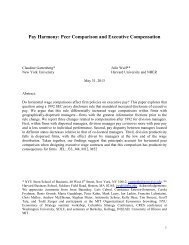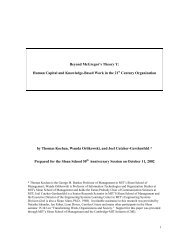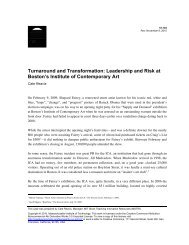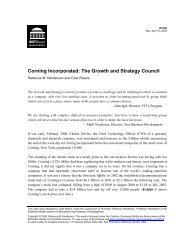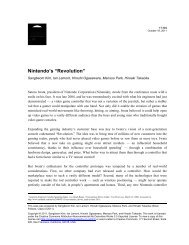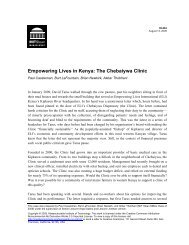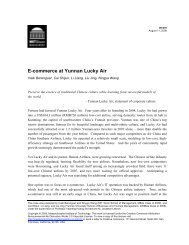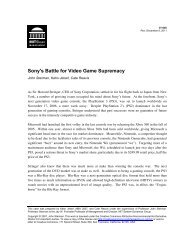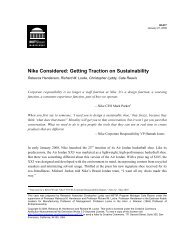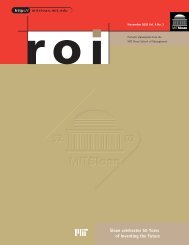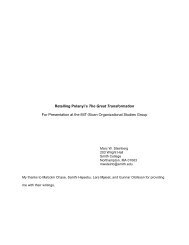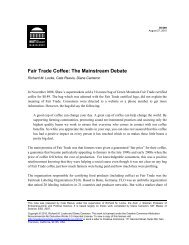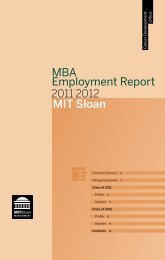Understanding earnings quality - MIT Sloan School of Management
Understanding earnings quality - MIT Sloan School of Management
Understanding earnings quality - MIT Sloan School of Management
Create successful ePaper yourself
Turn your PDF publications into a flip-book with our unique Google optimized e-Paper software.
unintentional misstatements, which are two <strong>of</strong> the three elements <strong>of</strong> the fraud triangle, but they do<br />
not investigate the third element: attitude. Recently, several studies have tried to examine the role <strong>of</strong><br />
executive characteristics in financial reporting decisions, including accounting fraud (Hribar and<br />
Yang, 2007; Schrand and Zechman, 2009; Ge, Matsumoto, and Zhang, 2009).<br />
2.3 Overview <strong>of</strong> the network and research opportunities<br />
This section summarizes ten additional research-related conclusions.<br />
1) Some studies treat the <strong>earnings</strong> <strong>quality</strong> proxies as substitutes and test hypothesized predictions<br />
about a determinant or consequence <strong>of</strong> “<strong>earnings</strong> <strong>quality</strong>” using a proxy for <strong>earnings</strong> <strong>quality</strong> that<br />
does not appropriately measure the theoretical construct. That is, not all studies carefully register<br />
that the testable hypotheses about the determinants and consequences <strong>of</strong> <strong>earnings</strong> <strong>quality</strong> come from<br />
decision models and the models suggest a specific form <strong>of</strong> decision usefulness (i.e., <strong>earnings</strong><br />
<strong>quality</strong>). We observe some mixed results that appear to be driven by a mismatch between the<br />
theoretical construct for decision-usefulness and the proxies. A good example is the studies <strong>of</strong><br />
accrual <strong>quality</strong> (see Section 2.1.1.4). There is strong (mixed) [weak] evidence that internal control<br />
procedures (audit <strong>quality</strong>) [governance characteristics] affect accrual <strong>quality</strong>. The order <strong>of</strong> the<br />
strength <strong>of</strong> the evidence is consistent with the order <strong>of</strong> construct validity. Internal control procedures<br />
are meant to detect and/or prevent both the ability to manipulate <strong>earnings</strong> as well as mistakes or<br />
errors, and the accrual proxies used in these studies generally represent the types <strong>of</strong> errors that<br />
internal controls could prevent. An auditor’s responsibility, however, is only to report on whether<br />
the financial statements conform to GAAP, and the prediction that audit <strong>quality</strong> (typically measured<br />
by a proxy for independence) would be associated with abnormal accruals is less compelling.<br />
Finally, the predicted association between governance <strong>quality</strong> and accrual <strong>quality</strong> is particularly<br />
tenuous. It is not clear why some commonly used indicators <strong>of</strong> governance <strong>quality</strong>, for example<br />
18



